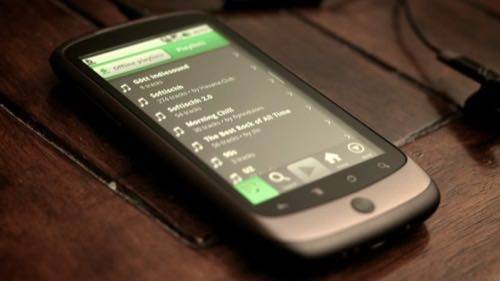
My family and I are in the process of moving. Always stressful, moving is made more so by the realization that we own far too much, and need to dump a lot of what we once thought essential. There’s an overflowing dumpster in our driveway that can attest to just how little ownership was actually necessary.
I’ve discovered a similar phenomenon whenever I move to a new digital device. A new laptop or mobile device gives me the chance to delete files that encumbered my old device. It’s liberating to simplify.
The Rise Of The Renter
Apparently, I’m not alone. As The Wall Street Journal notes, affluent Western societies are increasingly comfortable with the idea of renting prosperity instead of buying it:
In the American mind, renting has long symbolized striving—striving, that is, well short of achieving. But as we climb our way out of the Great Recession, it seems something has changed. Americans are getting over the idea of owning the American dream; increasingly, they’re OK with renting it. Homeownership is on the decline, and home rentership is on the rise.
But the trend isn’t limited to the housing market. Across the board—for goods ranging from cars to books to clothes—Americans are increasingly acclimating to the idea of giving up the stability of being an owner for the flexibility of being a renter.
Of course, much of the myth of ownership is just that: a myth. We’ve been essentially “renting” homes and our conspicuous consumption from banks and credit card-distributing financial institutions. We may think we’re in control, and we are: until we stop meeting our minimum payments. And then it’s clear who really owns our possessions.
Forced Rentership
Even when we can actually afford our purchases, we often don’t truly own them. Take your iPhone, for example. As The New York Times recently pointed out, Apple makes it impossible, or at least expensive, to upgrade its devices. But Apple also builds them to last through the two-year upgrade cycle. If the hardware still runs fine software updates ensure that it won’t function well with the latest and greatest “innovations” like iOS 7, as my family discovered when upgrading their iPhone 4/4S devices to iOS 7.
In other words, we’re effectively pushed into buying new devices every two years to plump Apple’s revenue and profits.
Granted, this is likely not some nefarious plan of Apple CEO Tim Cook’s to destroy civilization as we know it. But since Apple refuses to make its hardware upgradeable, we are left to essentially rent it for a two-year cycle and then chuck it.
This is even true of Apple’s laptops. Traditionally, computers have been completely upgradeable. No more. As The Register highlights, the new MacBook is locked down in ways that even Apple hasn’t envisaged before: “when it comes to taking them apart and fixing them, the new designs are more locked down than ever.”
We’re stuck with whatever the vendor opts to give us. Whenever and however they choose.
The Dark Side Of Renting
However, just because we don’t own something doesn’t mean that someone else doesn’t. Indeed, with all of the cloud services we opt to use, the cloud provider can keep a stranglehold on our “purchases.”
Take ebooks, for example. For years Amazon has made it clear that “ownership” of its Kindle ebooks is tenuous at best, an issue that came to a head last year when Amazon deleted a customer’s legally purchased books because of “previous abuses of company policy.”
It gets worse.
Recently ebook vendors have introduced a new word entered our renter society: “undownloading.” Highlighted on Techdirt by Glyn Moody, undownloading happens when your ebook provider discovers that you’ve made the mistake of traveling where it has no legal right to sell you books, so it decides to rip the books off your device. Even if you bought them in the United States or another authorized location.
In this case, no crime occurs, except for the crime of getting on an airplane.
The Mixed Bag Of Owning And Renting
Neither owning nor renting is necessarily optimal in every case, and will differ based on our individual circumstances. But we seem to be moving ever closer to ceding control of our mobile devices and associated digital content to others. Given how much of our lives they store, this doesn’t seem like a good thing.
Image courtesy of Flickr/Johan Larsson via CC.




















